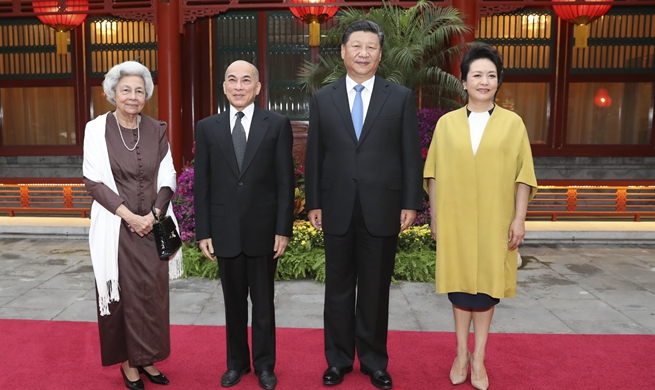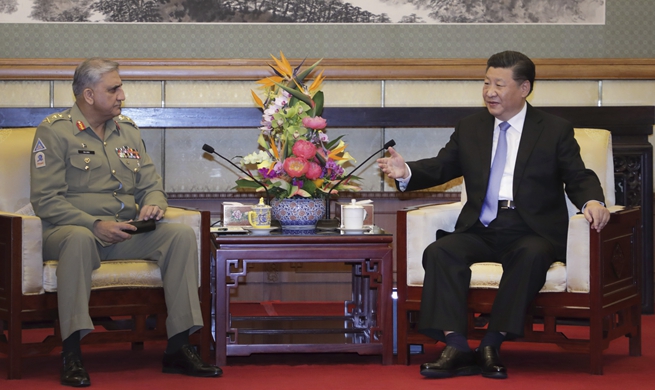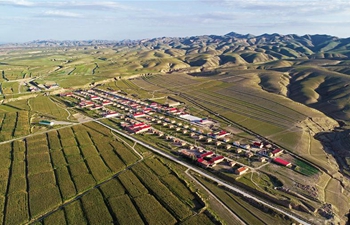ANKARA, Sept. 20 (Xinhua) -- Turkey unveiled on Thursday an eagerly-awaited Medium-Term Program (MTP) for the three-year period 2019-2021, aiming to reduce high inflation and control growth amid a currency turmoil.
Themed "stabilization, discipline and transformation," the Turkish government aims to reduce inflation and unemployment and control a sustainable GDP for the next years to come.
Treasury and Finance Minister Berat Albayrak called the MTP the "New Economic Program" during a press conference in Istanbul.
He underlined that it was a wide-ranging program to tackle inflation which hit 18 percent in July, the highest figure in the last 15 years.
The inflation target for 2018-2021 is 20.8 percent, 15.9 percent, 9.8 percent and 6 percent respectively, Albayrak announced with an upward revision compared to figures announced last year.
As for unemployment, he insisted that two million new jobs will be created by 2021. The actual unemployment rate was 10.2 percent in June.
The growth target for 2019-2021 stands at 2.3 percent, 3.5 percent and 5 percent respectively, with a downward revision compared to figures released last year.
The Turkish economy grew 5.2 percent in the second quarter of 2018, signaling a slowdown amid lira devaluation, double-digit inflation and an unresolved diplomatic spat with NATO ally, the United States.
In the first quarter of this year, the GDP growth was at 7.4 percent. According to analysts, the slowdown will be more obvious in the next two quarters of 2018, and Turkey would advance towards a recession in 2019.
"For 2018, we anticipate a growth of 3.8 percent," said the minister.
Albayrak also confirmed during his presentation that public investment projects that haven't begun yet will be suspended, in line with a decisive spending cut program announced earlier by President Recep Tayyip Erdogan.
"Some of the projects that have not been tendered out yet will be suspended. Mega infrastructure projects will be implemented with international financing," he said.
He also spelt out fresh targets for the current account deficit, another problematic area of the ailing economy. The current account deficit, he remarked, will be 4.7 percent of GDP in 2018, 3.3 percent in 2019, 2.7 percent in 2020 and 2.6 percent in 2021.
Experts welcomed the reasonable fact that the government's targets were revised in line with the actual currency volatility caused by domestic vulnerabilities and the ongoing diplomatic and trade spat with Washington over the detention of an American pastor.
"Economic and financial targets, especially on inflation and fiscal discipline, have become more realistic and credible in line with market's expectations, that's a positive thing really," financial analyst Enver Erkan from Istanbul-based GCM Securities told Xinhua.
He said Albayrak didn't dwell enough on concrete measures to support the banks in their liquidity management and help tackle bad loans resulting from the lira's plunge and the rising interest rates.

















